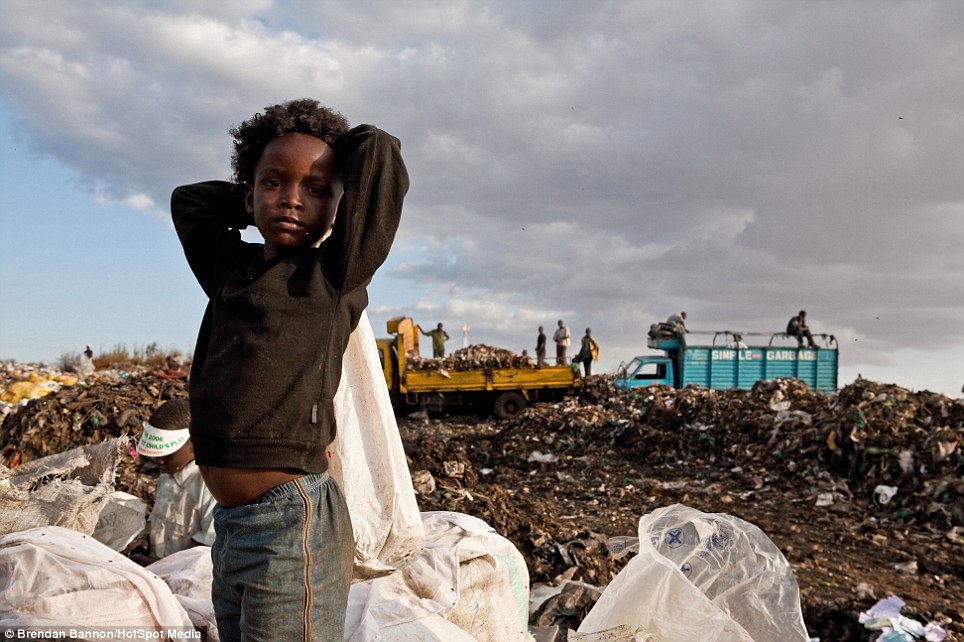In Nairobi, we care about taking care of our children in every way: the best education, having a good diet, playing sports, having friends, feeling loved, not going out on the street with little clothes in cold and rainy months, etc.

However, no matter how much care we want to give them, we cannot control all the factors that surround us in Kenya’s capital city.
One of them is pollution. We cannot deny the evidence of pollution that exists today, especially in large a large populated city of Nairobi. What can we do about this? As of 2018, Nairobi has more than 6.4 million people including the suburbs.
The mere fact of thinking about moving home is ruled out in most cases unless there is a serious potential danger to health. However, to what extent can contamination affect us as well as the little young ones?
Children are more affected by pollution than adults because we have had our systems and organs fully developed, young children are still in training, specifically children under 5 years of age.
For example, our immune system has memorized a whole repertoire of antibodies for viruses that we have faced throughout our lives, but the smaller ones do not, that’s why it is easier for them to catch a cold.
In addition, they tend to be in greater contact with infectious agents because they crawl, put objects in their mouths, etc.
On the other hand, we cannot remain in the concept of pollution as harmful particles suspended in the air, but there are several types of pollution.
1.Contamination in food: some fertilizers used for harvest, chemicals.
2.Contamination in the air: the toxic gases coming from the factories, the smoke from the cars, the tobacco, the inhalation of chemical substances.
3.Persistent pollutants: they are a type of compounds that contain organochlorinated substances. We talk about HCB contaminants, PCBs, DDE .Some of these appear around the world and at the time it was associated with developmental delays in children.
4.Contamination in water: dumping of chemicals, unhealthiness, contaminated water .
In developed countries we do not have as many pollution problems as in the underdeveloped where conditions are worse, the effects are not obvious, but even if we do not stop cheating, it is a problem that also affects us in the first degree.
How does environmental pollution affect children?
The effects in developing countries such as Kenya in regards to Nairobi seriously alter the health of children, reaching the point of being even deadly.
If we go to the data provided by the WHO in the month of March 2017, we find that more than 1.7 million children die every year because of water pollution.
The unhealthy state of water and lack of hygiene not only kills but also the symptoms of other diseases such as malaria, which is responsible for the death of one million children per year.
Other diseases that kill and produce pollution are respiratory diseases (32% of deaths, more than 570,000 children), trauma, food poisoning such as diarrhea (22%), death from other infections, perinatal transmitted diseases (15%), epidemics, cancer , stroke, coronary heart disease .
The list is terrible.
Nairobi as a single city has exceeded the minimum level measurement required in pollution.
In Nairobi alone, the concentration of particulate matter was significantly high and exceeded the World Health Organization (WHO) 24 hours guidelines of 150 – 230 grams per cubic meters for ambient air.
The pollution comes mainly from the expulsion of gases from transport and the combustion of oil, Industrial waste, sewage and domestic wastes.
For children, pollution in Nairobi city is a risk factor:
1.Greater predisposition to develop asthma, the relationship between environmental pollution and the worsening of respiratory health of children, whether they have asthma or not, has been proven.
In times when the concentration of pollutants (sulphates and ozone) is higher in the air, the lung capacity of children decreases while increasing the number of visits to the doctor and the sale of medication aimed at this purpose.
2.Death due to pneumonia because it aggravates the symptoms.
3.Problems in pregnancy. It has been associated with premature births and even accidental abortions.
4.Congenital heart diseases.
5.Maturative delays.
6.Cardiovascular diseases Apart from all the risk factors that already exist (cholesterol, tobacco, obesity .) we must also add the gases that come from the combustion of motor fuels. It is because of the contamination that it modifies the inner layer of the arteries so that they narrow more easily, thus increasing blood pressure and heart rate, increasing the risk of having a heart attack.
Last but not least is the consequences of that pollution in children at a cognitive level. In a study published in the journal Epidemiology in which a follow-up of Barcelona children between 7 and 9 years old from 40 different schools were conducted, they showed the neurotoxic effect of environmental contamination.
Those days in which the children were exposed to higher levels of pollution, their response speed was significantly lower, specifically one and a half months behind the natural improvement.
That is to say, environmental pollution, more specifically that which comes from diesel vehicles, reduces the attention and concentration of children, making them perform worse in the short term. It is still necessary to continue investigating if in the long term it would have similar effects, even if, the negative effects of contamination on the smallest is evident.














